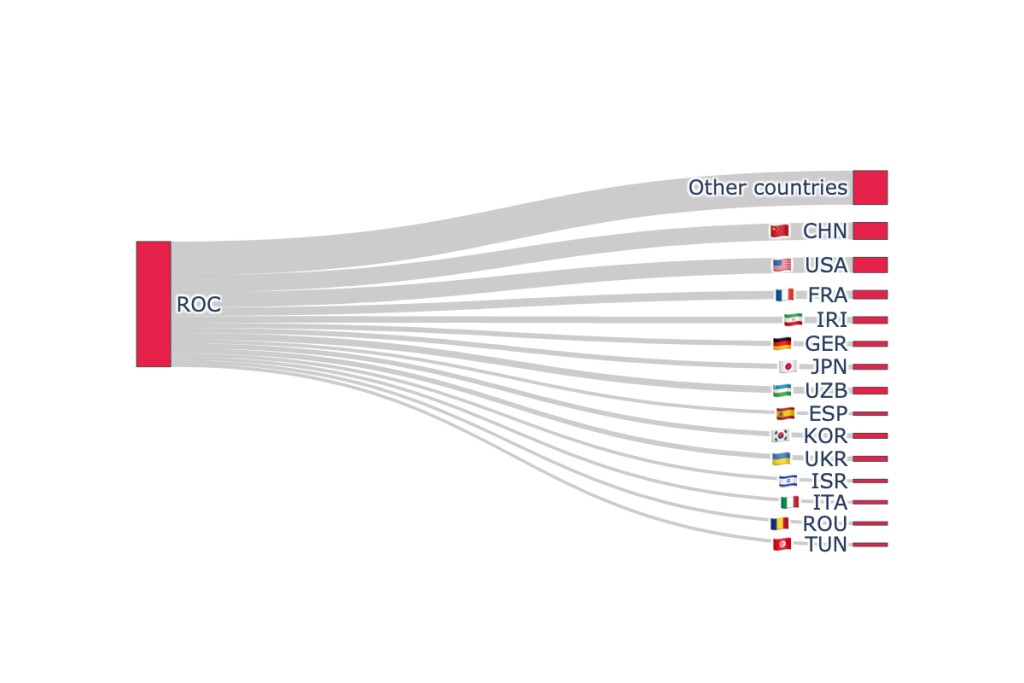The Paris 2024 Olympic and Paralympic Games, a massive international sporting event, brought together thousands of athletes from 206 territories to compete across a diverse range of sports. While celebrated as a global festival of athleticism and unity, the Olympics are not immune to controversy. Historically, and even in the lead-up to 2024, discussions and calls for boycotts have emerged, reflecting a complex interplay of political, ethical, and social concerns. Understanding why some groups and individuals consider boycotting the Olympics requires examining various factors, from geopolitical tensions and human rights issues to concerns about fairness and inclusivity within the Games themselves.
Historical Context of Olympic Boycotts
Olympic boycotts are not a new phenomenon. The most significant modern Olympic boycott occurred in 1980 when the United States led a coalition of approximately 60 countries in protesting the Moscow Games due to the Soviet Union’s invasion of Afghanistan. This event, illustrated in Figure 1, dramatically reduced participation and underscored how international politics can directly impact the Olympic movement. The number of participating nations saw a clear dip, highlighting the power of collective action in response to political events.
Figure 1: Trend of nations participating in Summer Olympics, highlighting the impact of the 1980 boycott on global representation.
Source: Statista, 2024
This historical precedent demonstrates that boycotts are a tool used to express disapproval and exert pressure on host nations or international sporting bodies. While the Paris 2024 Games proceeded largely without major state-led boycotts, understanding the underlying reasons for boycott discussions is crucial to assessing the current Olympic landscape.
Geopolitical Tensions and the Exclusion of Russia and Belarus
One significant area of controversy surrounding the Paris 2024 Olympics revolved around the participation of athletes from Russia and Belarus. Following Russia’s invasion of Ukraine and the violation of the Olympic truce, the International Olympic Committee (IOC) imposed strict restrictions. Russian and Belarusian athletes were largely barred from competing under their national flags and anthems. Only a small number, 15 from Russia and 17 from Belarus, were allowed to participate as “Individual Neutral Athletes” (AINs) under stringent neutrality rules.
This decision, while lauded by some as a necessary stance against aggression and in support of Ukraine, triggered boycott calls from different perspectives. Some argued that excluding athletes based on their nationality is discriminatory and violates the Olympic spirit of inclusivity. Conversely, others felt that allowing Russian and Belarusian athletes to compete in any capacity, even as neutrals, was insufficient and effectively normalized aggression. This situation highlights how geopolitical conflicts directly translate into the realm of international sports, creating ethical dilemmas and fueling boycott sentiments.
Concerns over Representation and Fairness
Beyond geopolitical issues, broader concerns about representation and fairness within the Olympic Games can also contribute to boycott discussions. While the Paris 2024 Games aimed to be the most gender-balanced in history, with women comprising nearly 49% of athletes, disparities persist. As shown in Figure 2, the size of athlete delegations varies dramatically between countries, often linked to resource disparity.
Figure 2: Olympic representation across nations, contrasting athlete numbers with population size to reveal potential resource-based inequalities.
Source: IOC, World Bank, 2023 population estimates
Countries with large populations, like Bangladesh, Myanmar, and Pakistan, had very small delegations compared to nations with similar or smaller populations but greater resources, such as the Netherlands. This disparity raises questions about equitable access to sports development and Olympic participation, potentially leading to calls for boycotts to highlight these systemic inequalities. If nations or athlete groups feel systematically disadvantaged or excluded, boycotts can be seen as a tool to demand greater fairness and resource redistribution within the global sporting system.
Ethical Considerations and Human Rights
Human rights concerns often fuel calls for Olympic boycotts. While not explicitly a central theme for Paris 2024, the broader history of the Olympics includes instances where host nations’ human rights records have prompted significant controversy and boycott movements. For example, prior to the Beijing 2008 Olympics and even the Beijing 2022 Winter Olympics, numerous human rights organizations and political figures called for boycotts to protest China’s human rights abuses, particularly in Tibet and Xinjiang.
Although Paris 2024 did not face similar widespread human rights boycott campaigns related to France itself, the principle remains relevant. The ethical dimension of choosing host cities and the IOC’s responsibility to uphold human rights principles are ongoing discussions. If future Olympic hosts are perceived to have egregious human rights records, or if the IOC is seen as failing to address these concerns adequately, boycott calls are likely to resurface as a form of ethical protest.
The Cost and Commercialization of the Olympics
The escalating costs of hosting the Olympics, as illustrated in Figure 11, are another source of concern and potential grounds for criticism and even boycott sentiment within host cities. Paris 2024 was projected to cost approximately $8.7 billion. While proponents emphasize long-term benefits like infrastructure development and economic stimulus, critics point to potential cost overruns, displacement of communities, and the diversion of resources from other pressing social needs.
Figure 11: Evolution of Olympic hosting expenses, indicating a significant rise in costs for both Summer and Winter Games over time.
Source: Budzier and Flyvjerg, 2024
In host cities, local activist groups sometimes emerge to protest the Olympics, raising concerns about gentrification, environmental impact, and the prioritization of mega-events over local needs. While these protests may not always translate into full-scale international boycotts, they represent a form of localized resistance and questioning of the Olympic model. If the perceived negative impacts of hosting outweigh the benefits for local populations, boycott movements within host cities can gain traction.
Conclusion: Boycotts as a Tool for Change?
While no major boycotts significantly impacted the Paris 2024 Olympics, understanding the reasons why people consider boycotting is crucial. Boycott discussions reflect a range of concerns, from geopolitical conflicts and human rights to issues of fairness, representation, and the ethical and economic impact of the Games. Boycotts, though controversial and often debated in terms of their effectiveness, remain a potential tool for athletes, nations, and activist groups to express dissent, exert pressure, and advocate for change within the Olympic movement and the broader world of international sports. As the Olympics continue to evolve, navigating these complex ethical and political dimensions will be essential for ensuring the Games remain a truly inclusive and positive global event.
References
- Statista. (2024). Number of countries participating in the Summer Olympics 1896-2012. https://www.statista.com/statistics/280462/summer-olympics-1896-2012-number-of-participating-countries/
- IOC. (2023). Olympic Representation Data.
- World Bank. (2023). Population Estimates.
- Budzier, A., & Flyvjerg, B. (2024). Olympic Costs of Hosting, Summer and Winter Games.
- Wikipedia. 2020 Summer Olympics medal table. https://en.wikipedia.org/wiki/2020_Summer_Olympics_medal_table
- Olympedia. Olympic Statistics and History. https://www.olympedia.org/

